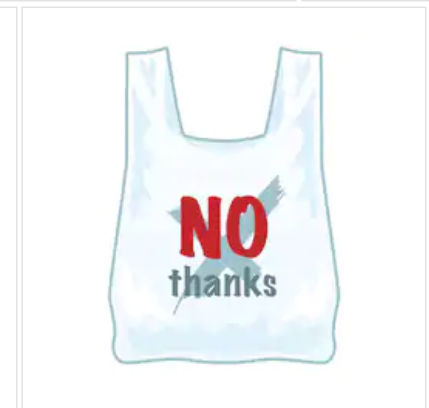
July 1, 2021 was a milestone date in Pennsylvania - one that put pollution from plastic bags on notice.
It marked the expiration of a statewide preemption that delayed implementation of any current policies to limit or ban single-use plastic bags. The legislature first tried to limit local plastic bag bans in 2017 through a standalone bill, which Gov. Tom Wolf vetoed. Lawmakers then added the preemption language into a budget-related bill called the fiscal code in 2019 and renewed it in 2020.
The absence of a renewal in this year’s state budget opens the door for cities and municipalities to approve new prohibitions or enforce existing bans.
Launching Philadelphia’s Law
Philadelphia’s plastic bag ban, which was signed into law by Mayor Jim Kenney in December 2019, finally went into effect this month starting with an extended outreach and education period that officials say will help increase compliance and ensure widespread awareness of the law among retailers and consumers. The ban’s requirements are being phased in gradually though. Starting Oct. 1, the city will begin issuing warnings to businesses violating the ban with full enforcement — which means no single-use plastic bags allowed — target to begin April 1, 2022.
Its implementation renews our effort to correct short comings by working to get Councilmember Mark Squilla to follow through on his pledge to introduce the BYOBag Bill. The current law does not impose fees on single-use paper bags and will compel retailers to increase the cost of all goods to cover the expense, estimated at $80-100 million. This is a cost all consumers will share, placing a disproportionate burden on the poor and a disincentive to choose reusable bags. Fees on single-use bags motivate reuse and have reduced the use of all single-use bags in other cities by up to 80%.The BYOBag Bill will add fees to all disposable carry out bags.
Still up in the air is a lawsuit the City of Philadelphia brought against the Commonwealth for the plastic bag ban pre-emption. We supported this move by joining an Amicus Brief which is legal maneuver that allows a person or a group that isn’t a party to a case to assist an appellate court by offering additional, relevant information or arguments the court may want to consider before making their ruling.The Commonwealth filed objections in opposition to the city's complaint and Republican leadership in the General Assembly via Speaker of the House Bryan Cutler and Senate President Jake Corman, filed to intervene on behalf of the state defendants. The Commonwealth argues it has sovereign immunity from the suit, that it is not a proper party and that the statute itself preempts local ordinances regarding plastics. They're also claiming there was an unreasonable delay in bringing this action and a failure to state a claim under the Environmental Rights Amendment. The General Assembly is arguing that the challenge is premature in its premise and filed too late, and that the statute does not violate the requirements of the Pennsylvania Constitution and complies with the Environmental Rights Amendment. The court has yet to respond these objections or rule on if the suit still has merit with the pre-emption no longer on the books.
Pittsburgh Enters the Fight
Pittsburgh City Council has made clear its intent to follow in Philadelphia’s footsteps. In May, they passed a resolution saying, “But for the pre-emption provision in section 1706E(d) of Act 23 of 2020, Pittsburgh City Council would introduce in the City of Pittsburgh legislation placing limitations on the usage of single-use plastic bags.”
In the interim, Councilmember Erika Strassburger has continued to draft language, extend outreach to stakeholders and develop measures to solicit broader feedback to ensure that as many voices are heard beforehand. But the city now has a clearer timeline of when it will be able to officially introduce and pass a ban.
In 2018, Pittsburgh spent approximately $2,734,400 on litter prevention, $57,700 on litter education and outreach, $2,706,900 on litter abatement, and $331,300 on enforcement of litter according to the Keep Pennsylvania Beautiful “The Cost of Litter & Illegal Dumping in Pennsylvania” study. Its Climate Action Plan 3.0 outlines goals of Zero Waste, a 100% diversion of waste from landfills, modernizing waste collection systems, and shifting towards a circular economy.


